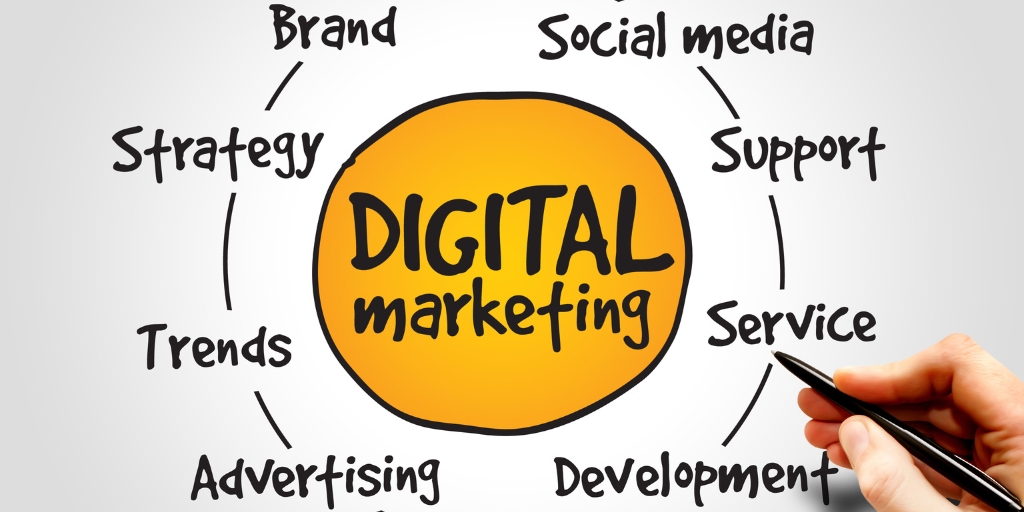
Digital marketing includes a wide range of tactics and strategies, such as email marketing, social media marketing, content marketing, search engine optimization (SEO), pay-per-click advertising (PPC), and more.
The goal of digital marketing is to reach and engage potential customers through the use of digital channels and technologies, and to encourage them to take a desired action, such as making a purchase or signing up for a newsletter.
Digital marketing allows businesses to reach and engage with their target audience in a more targeted and cost-effective way than traditional marketing methods. It also provides businesses with the ability to track and measure the effectiveness of their marketing efforts, allowing them to make informed decisions about how to allocate their resources.
Some key components of digital marketing include:
Web presence: A website is an essential part of a business’s digital marketing strategy. It provides a central location for customers to learn about a business, its products or services, and how to contact the business.
Content marketing: Creating and sharing valuable, relevant, and consistent content can help to attract and retain a clearly defined audience, and ultimately drive profitable customer action.
Email marketing: Email marketing involves sending promotional or informational emails to a list of subscribers. It is an effective way to reach and engage with customers and can be used to nurture leads, promote products or services, and drive conversions.
Social media marketing: Social media platforms, such as Facebook, Twitter, and Instagram, can be used to reach and engage with customers, build brand awareness, and drive traffic to a website.
Search engine optimization (SEO): SEO is the process of optimizing a website to improve its ranking in search engine results pages (SERPs). By optimizing a website for relevant keywords, businesses can increase the visibility of their website and attract more qualified traffic.
Overall, digital marketing is a powerful tool for businesses looking to reach and engage with their target audience and drive profitable customer action.
- Data-driven approach: Digital marketing allows businesses to track and measure the effectiveness of their marketing efforts in real-time, using tools such as web analytics and marketing automation software. This data can be used to optimize campaigns and make informed decisions about how to allocate resources.
- Multi-channel approach: Digital marketing involves using a variety of channels and technologies to reach and engage with customers. This may include a combination of email marketing, social media marketing, content marketing, SEO, PPC, and other tactics.
- Mobile-friendly: As more and more people use smartphones and tablets to access the internet, it is important for businesses to ensure that their website and marketing efforts are mobile-friendly. This may involve optimizing the website for mobile devices and using mobile-specific tactics, such as SMS marketing and mobile app advertising.
- Personalization: Digital marketing allows businesses to personalize their marketing efforts and deliver more relevant and targeted messages to their customers. This may involve using tools such as customer segmentation and personalization software to deliver personalized content and offers based on a customer’s interests and behaviors.
- Integration: Digital marketing should be integrated with traditional marketing efforts, such as print and television advertising, to create a cohesive and comprehensive marketing strategy.
Digital marketing is an essential part of any modern marketing strategy. By using a data-driven, multi-channel approach and leveraging the power of personalization and integration, businesses can effectively reach and engage with their target audience and drive profitable customer action.
Here are a few additional points to consider when it comes to digital marketing:
User experience (UX): The user experience is an important factor to consider in digital marketing. This refers to how easy it is for users to navigate a website or use a product or service. A positive user experience can help to improve customer satisfaction, increase conversions, and drive customer loyalty.
Customer journey: The customer journey refers to the series of interactions that a customer has with a business, from awareness to consideration to decision. Digital marketing can be used to support the customer journey by providing relevant and timely information and offers at each stage of the process.
Marketing automation: Marketing automation refers to the use of software and technology to automate marketing processes, such as email marketing, social media marketing, and lead generation. Marketing automation can help businesses to save time and resources, and to deliver more personalized and targeted messages to their customers.
Artificial intelligence (AI): AI and machine learning technologies are increasingly being used in digital marketing to improve targeting and personalization, optimize ad spend, and analyze customer data.
Ethics: Digital marketing should be conducted ethically and in compliance with relevant laws and regulations, such as the General Data Protection Regulation (GDPR) and the California Consumer Privacy Act (CCPA). This may involve obtaining consent from customers before collecting and using their data, and being transparent about how their data is being used.
Overall, digital marketing is a dynamic and constantly evolving field. By staying up-to-date on the latest trends and technologies, and by focusing on the user experience and ethical considerations, businesses can effectively use digital marketing to reach and engage with their target audience and drive profitable customer action.



